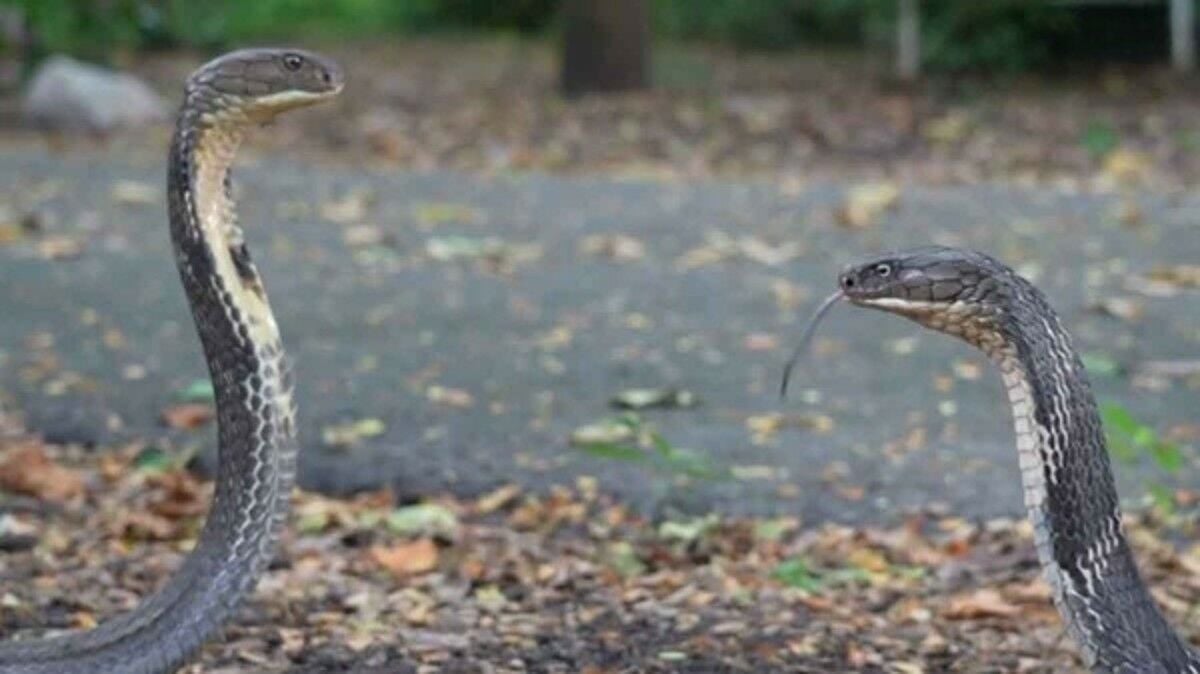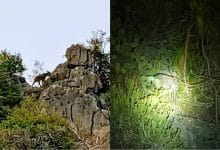New king cobra species discovered in Thailand (video)

New research has revealed four distinct species of king cobra, including a new variant found in Thailand. Nirut Chamngam, the head of the Herpetology Group, shared this discovery on social media, explaining the differences and implications of these findings.
Nirut Chamngam, an expert in snakes and reptiles, posted on Facebook about a new species of king cobra. He clarified that these species were not newly created but rather identified and classified from the previously known single species. The four species are: Ophiophagus hannah, Ophiophagus bungarus, Ophiophagus kaalinga, and Ophiophagus salvatana.
The first species, *Ophiophagus hannah, is the original name of the king cobra and can be found in northern India, Myanmar, Laos, Vietnam, Cambodia, and throughout Thailand up to Prachuap Khiri Khan. The second species, Ophiophagus bungarus, is the largest and is located in Malaysia, Brunei, Indonesia, and the Philippines. In Thailand, it is found from the end of Prachuap Khiri Khan down to the southernmost part of the country.
The third species, Ophiophagus kaalinga, is found in western India, while the fourth, Ophiophagus salvatana, is located in the Luzon Islands of the Philippines. These distinctions were long observable to the naked eye, making the official classification less surprising to experts.
Nirut also highlighted that Thailand now hosts two types of king cobras: the northern king cobra and the southern king cobra, also known as the Malayan king cobra or Bongnar. The behaviour and temperament of these two types often differ. Generally, the southern king cobra is considered less aggressive compared to its northern counterpart. However, individual snakes can vary, with some southern king cobras displaying irritable behaviour.
Regardless of type, most king cobras tend to flee when encountering humans unless startled or cornered, in which case they might become aggressive. Nirut emphasised the importance of maintaining a safe distance and exercising caution around these snakes.
The Facebook post also included a video featuring a confrontation between a northern king cobra and a southern king cobra. The video aimed to demonstrate the interaction between the two when faced with each other. Nirut explained that king cobras possess some resistance to their own venom, and during a face-off, neither snake makes a rash move. Instead, they engage in an intense stare-down, where any movement could signify weakness, prompting an attack from the opponent.
However, the Herpetology Group prevented the snakes from actual biting by holding their tails. This precaution was taken to avoid any injuries to the snakes involved. Such interactions highlight the complex behaviour and adaptations of these fascinating reptiles, reported KhaoSod.
What Other Media Are Saying
- SavetheSnakes reveals four distinct king cobra species, highlighting genetic and physical differences, emphasizing conservation importance for these majestic, venomous snakes. (read more)
Frequently Asked Questions
Here are some common questions asked about this news
Why is the discovery of four king cobra species significant for herpetology?
It highlights the importance of detailed observation and can lead to better conservation and understanding of their behaviour.
How might the behaviour of different king cobra species affect human interactions?
Understanding species-specific behaviours can inform safer handling and conflict-avoidance strategies.
What if king cobras from different species were to encounter each other in the wild?
Such encounters could lead to intense stare-downs, with each snake assessing the other before any aggressive action.
How does the discovery of a new king cobra species in Thailand impact local wildlife management?
It necessitates tailored conservation efforts and public awareness to handle different King Cobra species appropriately.
Why might the southern King Cobra be less aggressive than the northern king cobra?
Differences in environmental pressures and evolutionary adaptations could influence their temperaments.
Latest Thailand News
Follow The Thaiger on Google News:


























